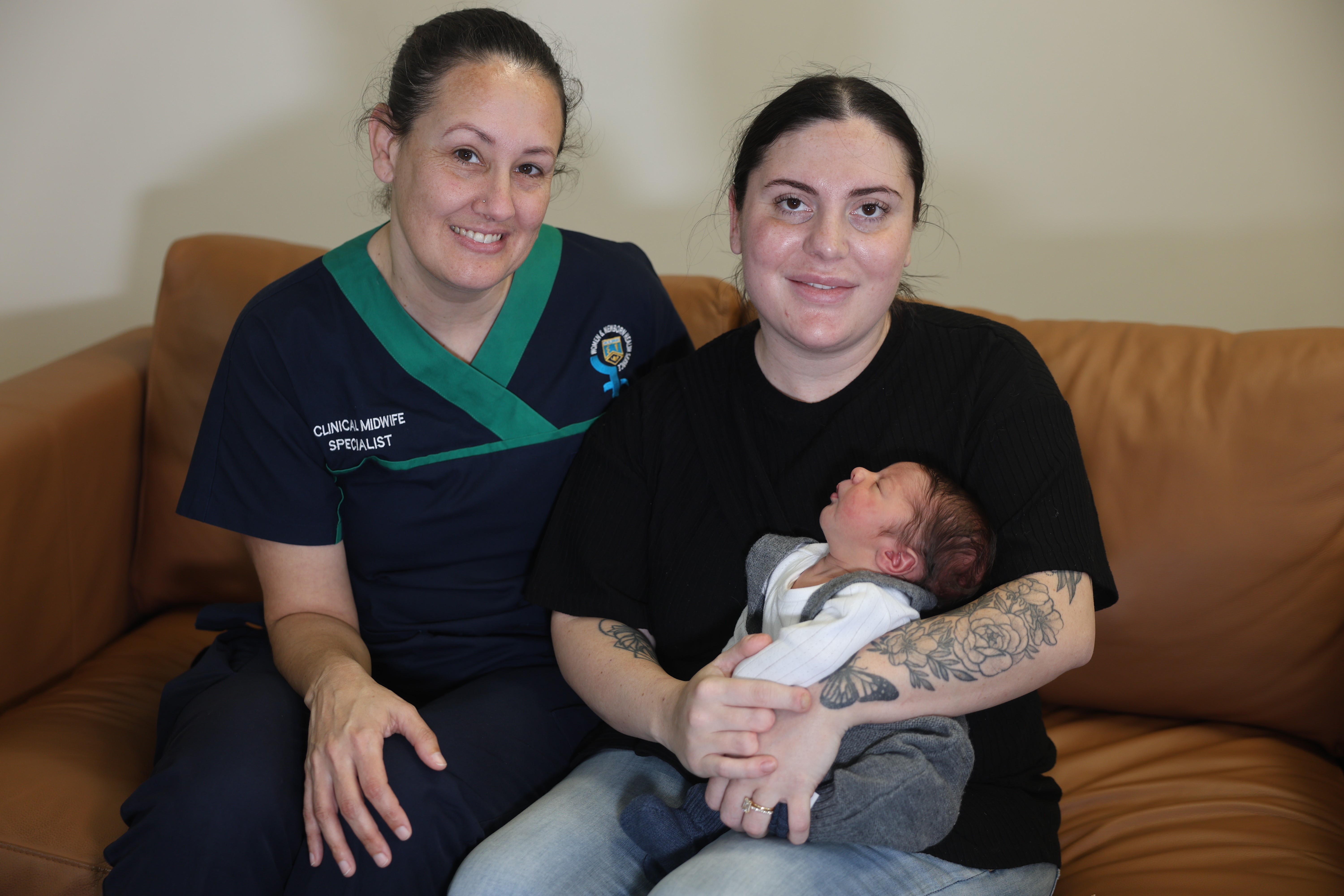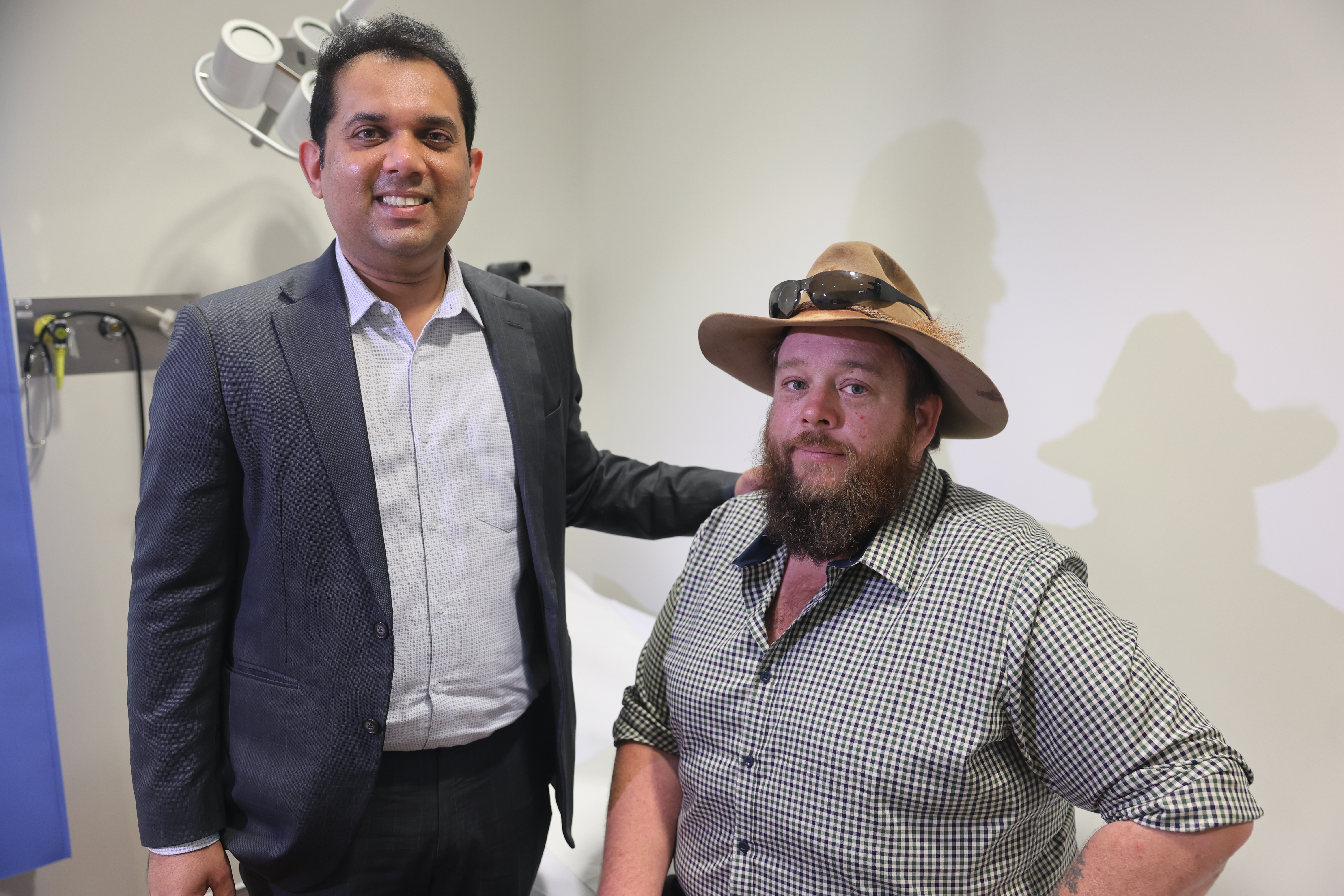Latest News
More News
-
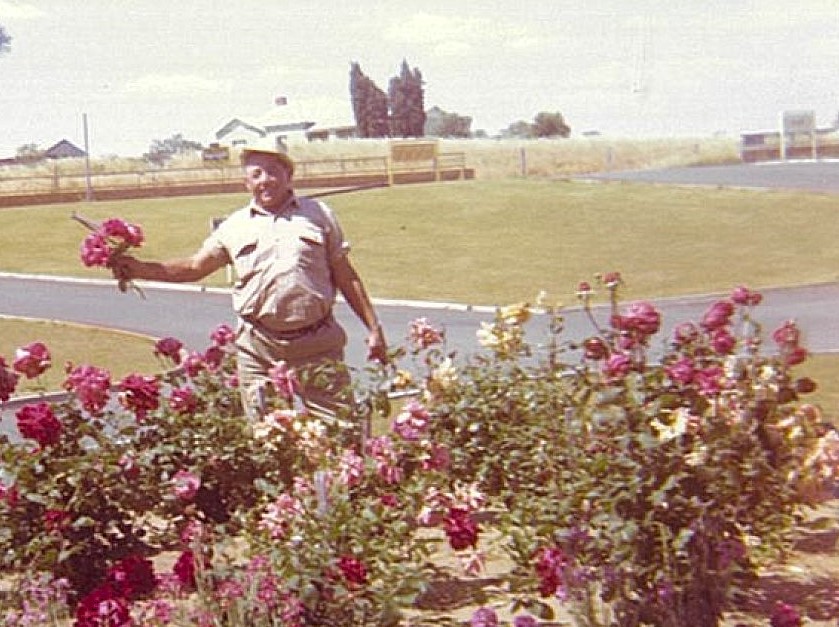 Three generations at Osborne Park Hospital 08 April 2025 When Angelo Donatti commenced work as a gardener at the newly-opened Osborne Park Hospital in the 1960s, little did he know that more than 60 years later both his daughter and granddaughter would follow in his footsteps and join the Sir Charles Gairdner Osborne Park Health Care Group (SCGOPHCG) team. Angelo’s granddaughter Amy Burgess joined Osborne Park Hospital four years ago as a Social Worker and late last year her mother and Angelo’s daughter Donna Burgess commenced work at OPH. “I am working in administration at OPH Social Work and Acute; it’s a really nice feeling,” Donna said. Angelo, or Alec as he was known, planted the original gardens at Osborne Park Hospitalfrom 1961 to around 1965, after immigrating from Italy as a child with his family. When Donna was growing up, her family lived in one of the few houses nearby, which also included market garde...
Three generations at Osborne Park Hospital 08 April 2025 When Angelo Donatti commenced work as a gardener at the newly-opened Osborne Park Hospital in the 1960s, little did he know that more than 60 years later both his daughter and granddaughter would follow in his footsteps and join the Sir Charles Gairdner Osborne Park Health Care Group (SCGOPHCG) team. Angelo’s granddaughter Amy Burgess joined Osborne Park Hospital four years ago as a Social Worker and late last year her mother and Angelo’s daughter Donna Burgess commenced work at OPH. “I am working in administration at OPH Social Work and Acute; it’s a really nice feeling,” Donna said. Angelo, or Alec as he was known, planted the original gardens at Osborne Park Hospitalfrom 1961 to around 1965, after immigrating from Italy as a child with his family. When Donna was growing up, her family lived in one of the few houses nearby, which also included market garde... -
 New RSV immunisation options 03 April 2025 For the first time, RSV immunisation is now available to Western Australians both during pregnancy, and for eligible babies and children born from 1 October 2023. RSV is a highly infectious respiratory virus that infects over half of all babies in their first year of life. Prior to 2024, around 1,000 WA babies were admitted to hospital with RSV each year. In 2024, the RSV infant immunisation program prevented over 500 RSV hospitalisations. A single dose of the maternal vaccine, Abrysvo, or the infant immunisation, Beyfortus, provides crucial protection to babies in their first months of life when they are most vulnerable. Parents are urged to either get immunised during pregnancy (between 28 and 36 weeks), or get their baby immunised if born from 1 October 2024. Some children born from 1 October 2023 may also be eligible if they are at higher risk of getting sick – speak to your lo...
New RSV immunisation options 03 April 2025 For the first time, RSV immunisation is now available to Western Australians both during pregnancy, and for eligible babies and children born from 1 October 2023. RSV is a highly infectious respiratory virus that infects over half of all babies in their first year of life. Prior to 2024, around 1,000 WA babies were admitted to hospital with RSV each year. In 2024, the RSV infant immunisation program prevented over 500 RSV hospitalisations. A single dose of the maternal vaccine, Abrysvo, or the infant immunisation, Beyfortus, provides crucial protection to babies in their first months of life when they are most vulnerable. Parents are urged to either get immunised during pregnancy (between 28 and 36 weeks), or get their baby immunised if born from 1 October 2024. Some children born from 1 October 2023 may also be eligible if they are at higher risk of getting sick – speak to your lo... -
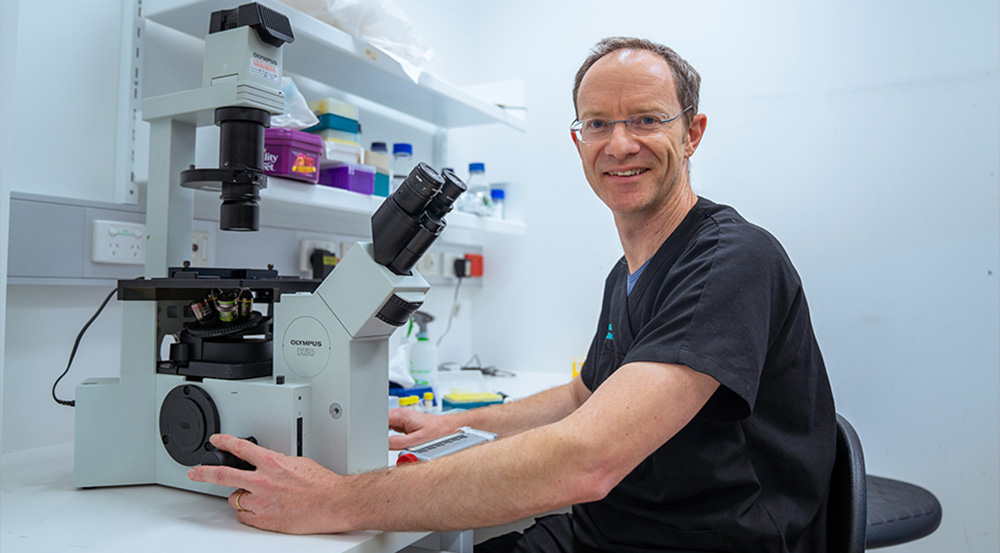 Groundbreaking study to treat those suffering with anxiety 02 April 2025 Sir Charles Gairdner Hospital Psychiatrist Professor Sean Hood recently spoke to ABC radio about a groundbreaking study to help treat people diagnosed with an anxiety disorder. Sean said anxiety is the most common condition across the nation. The study looks at identifying the genes that influence a person’s risk of developing anxiety and their response to treatment. “It is estimated roughly one in six adults have a significant anxiety related condition that could benefit from treatment,”Seansaid. “With the disorder being a growing condition, this kind of research can help psychiatrists in determining the best way to treat and manage it.” The studyinvolved 5,000 people and contains questionnaires and interviews to help clinicians to analyse if there is a significant problem that needs further investigation. Sean is also head of the Universi...
Groundbreaking study to treat those suffering with anxiety 02 April 2025 Sir Charles Gairdner Hospital Psychiatrist Professor Sean Hood recently spoke to ABC radio about a groundbreaking study to help treat people diagnosed with an anxiety disorder. Sean said anxiety is the most common condition across the nation. The study looks at identifying the genes that influence a person’s risk of developing anxiety and their response to treatment. “It is estimated roughly one in six adults have a significant anxiety related condition that could benefit from treatment,”Seansaid. “With the disorder being a growing condition, this kind of research can help psychiatrists in determining the best way to treat and manage it.” The studyinvolved 5,000 people and contains questionnaires and interviews to help clinicians to analyse if there is a significant problem that needs further investigation. Sean is also head of the Universi... -
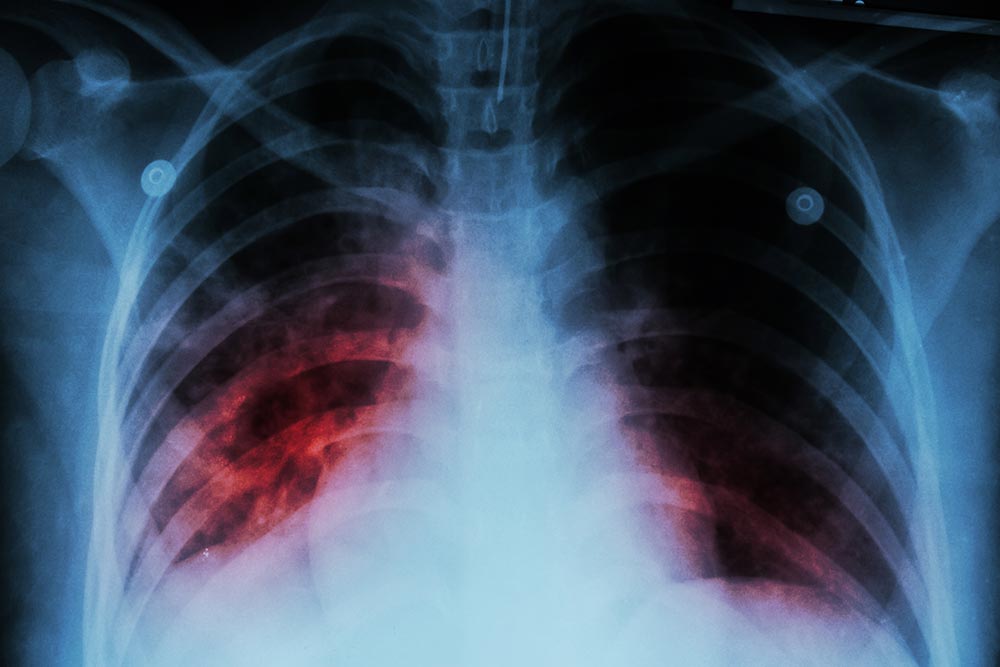 Creating Awareness of World TB Day 01 April 2025 On World Tuberculosis (TB) Day, we are highlighting the importance of early detection and treatment of this infectious disease to help eliminate its spread around the world, as numbers still remain high. Despite being preventable and curable, TB remains the world’s deadliest infectious disease. Western Australia TB Control Program (WATBCP) Medical Director Dr Alison Keed said there were 231 reported cases of TB disease in WA last year, a 43 per cent increase from 2023. While Australia has a low incidence of TB, cases continue to rise and predominantly affects people born overseas in marginalised and vulnerable groups, with 10.8 million cases reported by the World Health Organisation in 2023. “The WATBCP is committed to providing the best possible care to people affected by TB,” Alison said. “We work collaboratively with infectious disease specialists and a range o...
Creating Awareness of World TB Day 01 April 2025 On World Tuberculosis (TB) Day, we are highlighting the importance of early detection and treatment of this infectious disease to help eliminate its spread around the world, as numbers still remain high. Despite being preventable and curable, TB remains the world’s deadliest infectious disease. Western Australia TB Control Program (WATBCP) Medical Director Dr Alison Keed said there were 231 reported cases of TB disease in WA last year, a 43 per cent increase from 2023. While Australia has a low incidence of TB, cases continue to rise and predominantly affects people born overseas in marginalised and vulnerable groups, with 10.8 million cases reported by the World Health Organisation in 2023. “The WATBCP is committed to providing the best possible care to people affected by TB,” Alison said. “We work collaboratively with infectious disease specialists and a range o... -
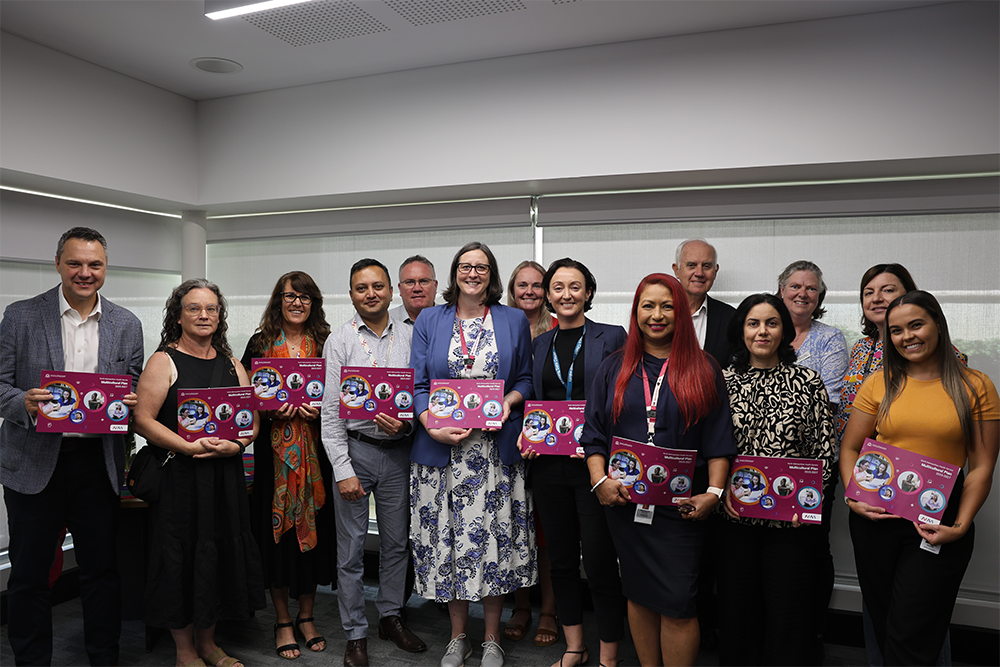 Multicultural Action Plan launched 21 March 2025 Our new Multicultural Action Plan (PDF) has been launched, providing a guiding framework to build and maintain a diverse and inclusive workforce and meet the needs of our culturally and linguistically diverse community (CALD). Developed in consultation with staff and key stakeholders, the plan aligns closely to our three strategic objectives: partnering with consumers, advancing health equity and access, and becoming the best place to work. It includes updates on our progress to date and was developed in alignment with the three policy priority areas of the Western Australian Multicultural Policy Framework. These include: Harmonious and inclusive communities Culturally responsive policies, programs and services Economic, social, cultural, civic and political participation Executive Director Consumer Experience and Clinical Excellence Tina Bertilone said the plan is of par...
Multicultural Action Plan launched 21 March 2025 Our new Multicultural Action Plan (PDF) has been launched, providing a guiding framework to build and maintain a diverse and inclusive workforce and meet the needs of our culturally and linguistically diverse community (CALD). Developed in consultation with staff and key stakeholders, the plan aligns closely to our three strategic objectives: partnering with consumers, advancing health equity and access, and becoming the best place to work. It includes updates on our progress to date and was developed in alignment with the three policy priority areas of the Western Australian Multicultural Policy Framework. These include: Harmonious and inclusive communities Culturally responsive policies, programs and services Economic, social, cultural, civic and political participation Executive Director Consumer Experience and Clinical Excellence Tina Bertilone said the plan is of par...
Last Updated:
18/10/2023




